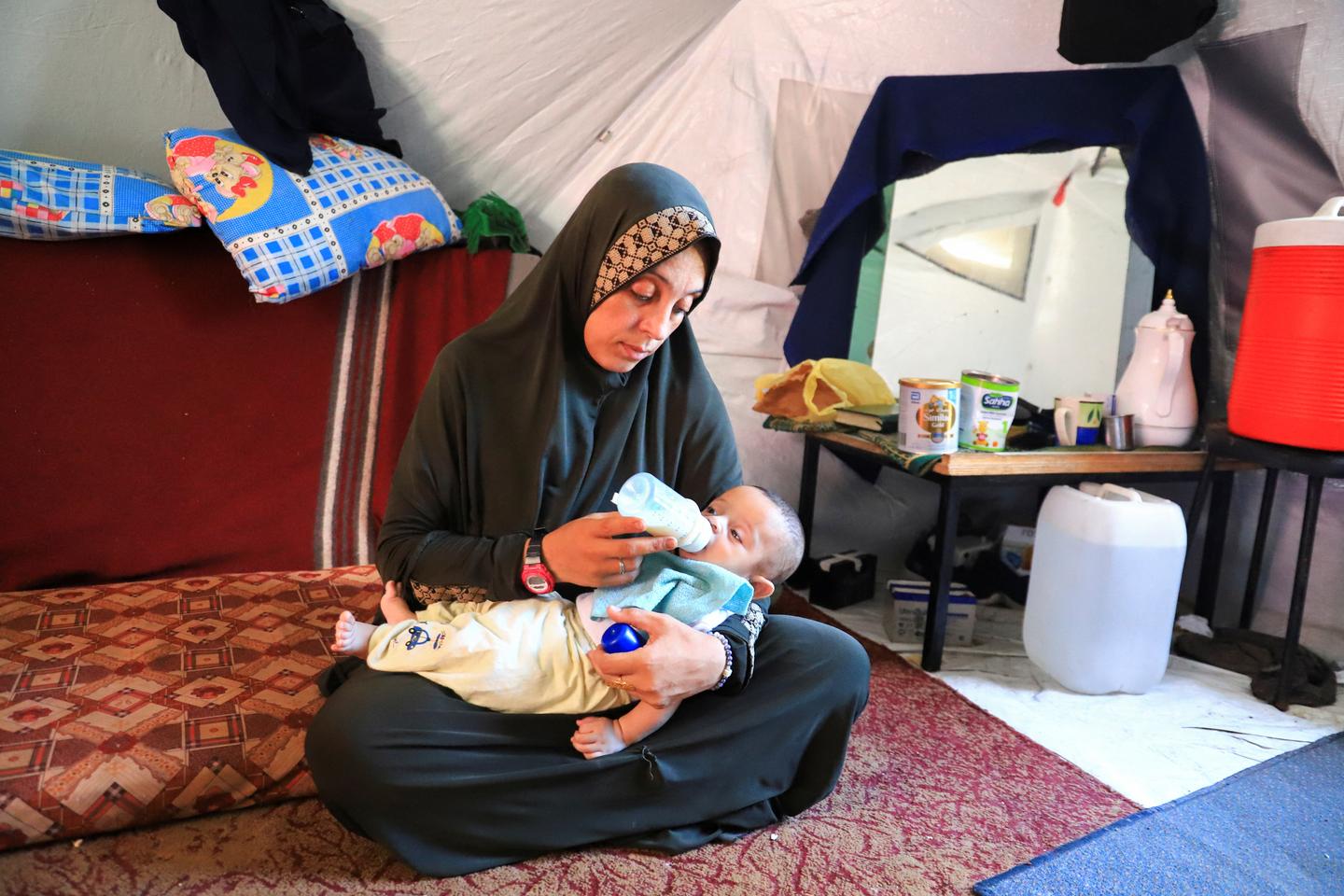At the end of June, an American doctor was preparing to travel to Gaza for a medical mission. His suitcases were filled with cans of baby formula, gauze, bandages and sanitary pads. He believed he was doing the right thing: The Palestinian population of the enclave, bombarded and starved by the Israeli army, lacks everything. While in Amman, a mandatory gathering point for foreign medical missions heading to Gaza, the coordinator of the convoy urged him to lighten his load. "If you only have medical supplies and no personal belongings, you risk being turned away, or even jeopardizing the whole mission," she explained.
The American doctor followed her instructions, reducing the baby formula in his luggage to three cans. Once at the Allenby Bridge crossing between Jordan and the Israeli-occupied West Bank, however, his personal belongings were searched by Israeli security guards manning the terminal on the Palestinian side.
"The baby formula was confiscated," the coordinator said. "What other explanation is there, if it's not that hunger is being used as a weapon of war in the ongoing genocide in Gaza?" Local health workers said baby formula is desperately lacking in the enclave, especially specialized formula for premature babies or lactose-free formula for babies with intolerances. Many mothers, suffering from malnutrition, are unable to breastfeed.
Doctors entering Gaza have resorted to packing individual cans of infant formula in their personal luggage. On at least one occasion, Israeli authorities confiscated 10 cans of infant formula from the luggage of an American doctor recently entering Gaza for a medical mission.
“In the end they confiscated all the cans of baby formula, which was specifically formula for pre-term babies. What on earth is baby formula going to do against the security of the state of Israel?” said Dr Diana Nazzal, a Palestinian-German eye surgeon who helped the American doctor pack his bags in a way that would be acceptable to Israeli border authorities.
Nazzal added that many medical staff entering Gaza are filling their bags with calorie-dense foods such as protein bars and nuts, rather than medical supplies.
British orthopedic surgeon Graeme Groom, whose speciality is, along with anesthesiology, one of the most sought in Gaza, said he was "not allowed to bring anything with him" for the first time in May, upon his fourth mission to Gaza in 20 months of war. No scalpel, no staples, no circular external fixators used to stabilize fractures and thereby "reduce the risk of infection and, therefore, amputation."
Having known Gaza before the war, when the medical system was considered advanced and local staff benefited from training by foreign practitioners, he described a territory "where children are diagnosed with severe malnutrition every day, and where I saw babies who were just skin and bones."
UNICEF reported that in May alone, over 5,000 children aged 6 months to 5 years were admitted for treatment of acute malnutrition, a scourge that did not exist in Gaza before the war.
no paywall: archive.ph/DoP78Doctors also expressed concern about the growing number of rejections to enter Gaza. COGAT often issues refusals the day before leaving Amman, even though the WHO-approved applications are submitted to the Israeli agency two weeks before. "The last-minute notifications make our response difficult. Rejected doctors are not replaced," said Thaer Ahmad, an American emergency physician. Only one member of the convoy of health workers he was supposed to join, a midwife, was among the 15 humanitarians granted access.
He sees these restrictions as part of the ongoing "unraveling of Palestinian health and education institutions." The rejection of doctors "cuts Gaza's last link to the outside world," Ahmad said. Entry refusals appear to target, in particular, practitioners of Palestinian origin and those who speak to the media upon their return. "Speaking out means risking not being able to return to Gaza."

Israel limits entry of baby formula in Gaza as infants die of hunger
While waiting to enter Gaza on a medical aid mission, an American doctor watched Israeli security forces confiscate the cans of powdered baby formula packed in his luggage. The vital product is desperately lacking in the Palestinian enclave, where about 50 children have died of hunger since March.
 www.lemonde.fr
www.lemonde.fr

‘They’re skin and bones’: doctors in Gaza warn babies at risk of death from lack of formula
Doctors say Israel is blocking deliveries of formula urgently needed as mothers are either dead or too malnourished to feed their babies
Last edited:
